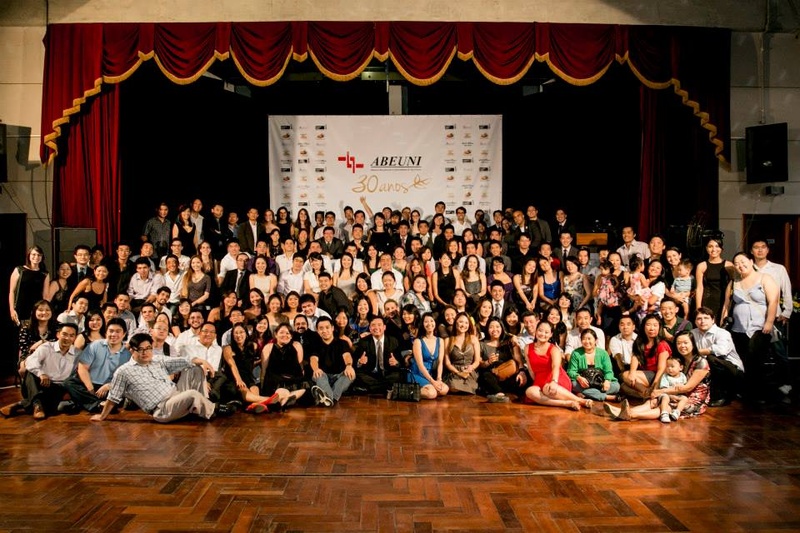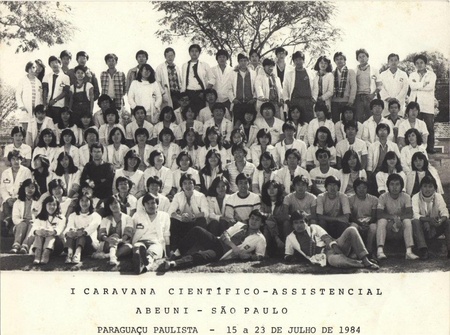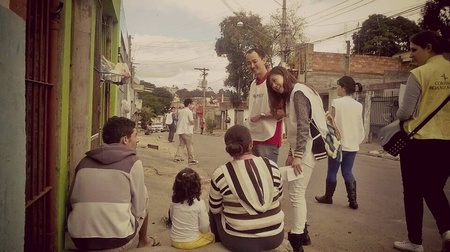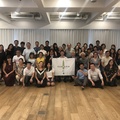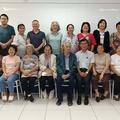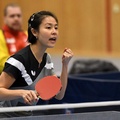Among the youth associations created under the Nikkei initiative in Brazil, one of the most solid is ABEUNI (Portuguese acronym for Beneficent Universitary Alliance of Sao Paulo). In 2014, it had completed 30 years in operation.
“Our mission is to improve the population’s welfare through humanized care, promoting health, education, and citizenship combined with personal and social development of the volunteers,” explains Cecilia Ikedo, third generation Nikkei, data analyst, and current president.
The association was created from ABENIBRA (Portuguese acronym for Nipo-Brazilian Beneficent Association), composed of doctors and healthcare professionals that assist Japanese immigrants who do not have access to hospitals or have trouble with the Portuguese language.
Among the sections of ABENIBRA, there was one formed by college students, who, gradually, expressed the will to broaden the assistance to the population in general.
In 1984, this department decided to become independent and formed a new association, ABEUNI. “Due to this origin, most of our members are still Japanese descendants,” tells Cecilia. Current members are college students and professionals from many areas, from 17 to 30 years old.
“I believe these [Nikkei] associations are important not only in the social sense, but also on the matter of preserving and spreading Japanese culture,” says Cecilia.
Celso Takahashi, also third generation Nikkei, physiotherapist, and member since 2004, adds: “These associations gather people who share similar ideals, ideas, and goals. In the past, they helped the socialization of Japanese families and got themselves stronger; nowadays, they represent opened doors to a socialization that involves not only the Nikkei community, but also other people interested in their culture. If these Nikkei associations end, we won’t have anymore a strong and organized influence in Japanese culture, and its benefits, which Brazilian society could enjoy, will be wasted.”
New members
The main method to recruit new members is by word of mouth, in which a member invites a friend to join and so on. Naturally, Nikkei participation is still strong, despite the communication made by ABEUNI that it is not intended specifically in this sense.
“My sister usually brought things from ABEUNI to do at home and called the whole family to help. When I got to know better the ABEUNI goals, I decided to join due to the social responsibility aspect, but during this time, I realized the benefits it gave me of personal development and friendships formed there,” tells Celso.
“Social networks facilitate our work. Since we started using these tools, we could reach other audiences, which made the Nikkei participation percentage decrease,” estimates Cecilia.
The promotion of ABEUNI is done in universities and also at events, such as Festa Junin (June Festivity), Festival ABEUNI (with attractions related to Japanese culture), and Copa ABEUNI, an indoor soccer tournament.
Such events aim to raise financial resources for the association, but appeals to new members as well.
In order to maintain current members, Cecilia highlights friendship bonds that are formed among volunteers.
“The pillars of integration and friendship are very strong for us. When we are at an event, it is 150, 200 volunteers. Everyone gets along well, knows each other. During the events, there is time to socialize. It is important to us to integrate new members. It is much more pleasant for volunteers to work with those they know, with friends. At our headquarters, every Saturday, we have a general meeting, in which we make announcements and share updates. We have a commission that organizes activities after this meeting. We go out for dinner, bowling, karaoke, etc. I believe we manage to keep members mostly because of the integration.”
The average time a volunteer has a strong dedication to ABEUNI is 2 to 3 years. “Even if one gets away a little, it is OK to come back anytime, still as a proper member,” explains Cecilia.
Welfare activities
In all the existance of ABEUNI, more than 2,000 volunteers have participated in the association, exceeding 200,000 healthcare assistances performed during Caravanas (Caravan, convoy) and Minicaravanas.
In Caravans, volunteers visit towns near Sao Paulo city, such as Embu Guaçu, Itapevi, and Atibaia. They talk to the local prefecture, since authorization is required to use structure, transportation, and means to announce the assistance to the population. During this time, about 200 participating volunteers stay in public schools, where the assistance itself also takes place.
Caravana and Minicaravana differ only concerning how much time each one lasts: while the first happens during a whole week, the second is held only over a weekend. Both take place twice a year, alternately.
“I took part of a group that organized Health Caravans. The last time I had participated was at Sao Vicente, in which I was the main contact with the local Board of Health. Everything went OK. I was very proud and felt fulfilled, because I felt that I could do much more things than I thought,” states Celso.
In Caravans, volunteers perform dental care services like fillings and tooth extraction, and nursing services, such as measuring blood glucose, pressure measurement, and sampling for Pap smear. There are also information about disease prevention, nutrition, and home economics.
Some volunteers register people attended, while others are responsible for the preparation and sterilization of materials used. Still, others do field research in poor neighborhoods to seek information on health conditions on site.
“We always say to the first-time volunteers that we want to offer a humanized treatment. Call patients by their name, look them in the eyes. The population welcomes us with great affection. It is not only a medical question. Sometimes it is lack of human contact, lack of affection. That is what we try to express,” says Cecilia.
ABEUNI also develops ongoing projects with entities or underserved communities. Currently, the project “Educating the Future” focuses on education, with the purpose of developing in children concepts such as citizenship, teamwork, respect, and discipline through play activities.
More about ABEUNI
Website (in Portuguese): http://www.abeuni.org.br
Institutional video (in Portuguese):
© 2015 Henrique Minatogawa


